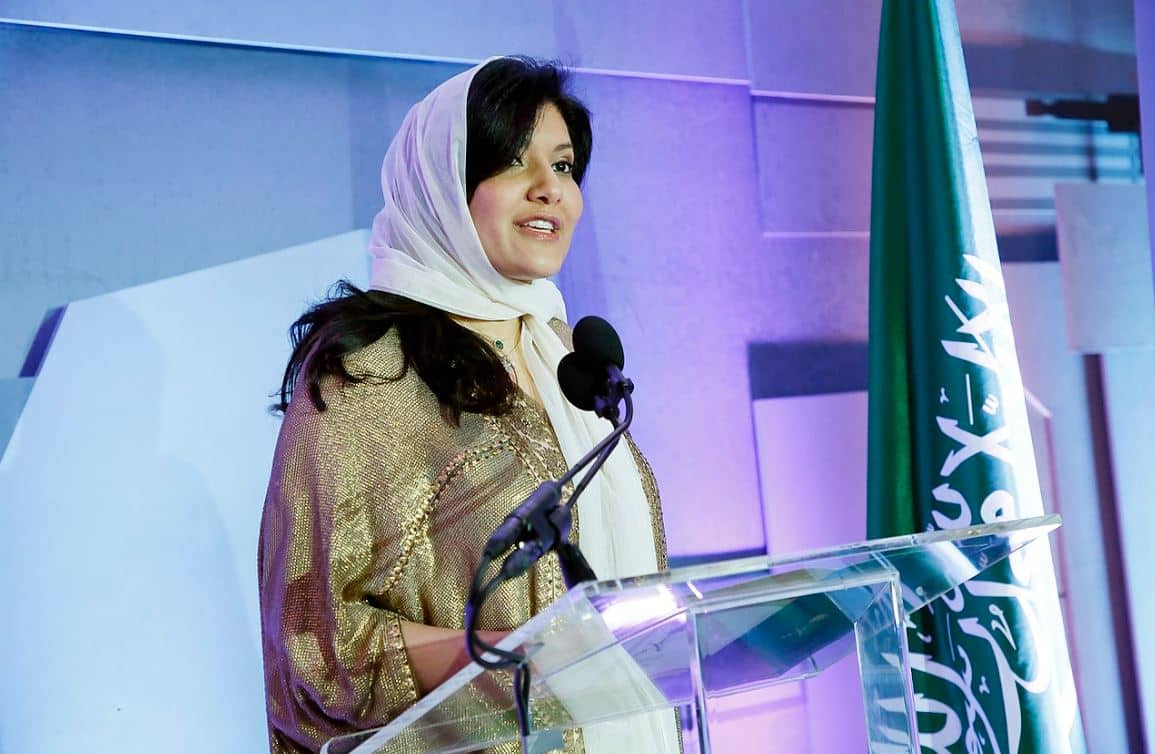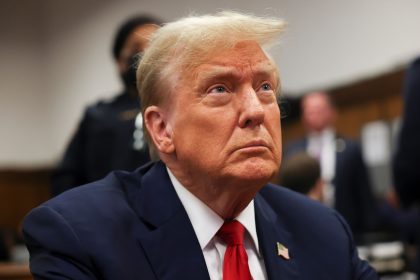Princess Reema bint Bandar Says American Childhood Prepared Her for Ambassadorship

WASHINGTON — Her Royal Highness Princess Reema bint Bandar remembers DC’s cicadas. In fact, she says she lived through the “cicada invasion” twice during her “non-diplomatic, but highly socially-connected” childhood in Northern Virginia while her father served as Saudi Arabian Ambassador to the United States from 1983-2005.
Now, the Ambassador role is hers and the Brood X visitors are here, but Bandar claims Saudi Arabia is very different, especially after its recent efforts toward economic and social liberalization, including enhanced women’s rights.
“I’m lucky to have experienced life in both Saudi and the United States,” said Bandar, speaking to participants of the Ronald Reagan Building and International Trade Center’s webinar series which focuses on women in roles of leadership in diplomacy, international business, philanthropy, culture, and the arts. She suggested that her dual experiences help her to better understand perceptions in both countries as well as to encourage a generation of young people that aspire to change.
“My memories of America are memories of joy, but the world began to change… and those seeds [of change] are what I’m dealing with now,” said Bandar. “In each hat, each life that I lived, informed me and prepared me for the work I’m doing now, to be honest.”
Among her roles, Bandar has been a founder, a CEO, a leader in financial literacy, and now the first female envoy in Saudi Arabia’s history just at the time when President Biden is recalibrating relations with the Gulf nation. She offered insights on evolving roles for women in her country but also used her American experience and her singular charm to counter any anti-Saudi sentiment.
“Today’s times are different but equally as important and equally as challenging… It’s my goal to [explain] why this alliance is even more important now than ever before,” said Bandar.
Touting Saudi Arabia’s Vision 2030 reform programs, which offer plans for sustainability, tourism, and innovation as well as political and social changes to be achieved by the year 2030, Bandar suggested that there may be “stories misinterpreted or underreported” in America, but she insisted that Saudi’s reform process is “real and here to stay.”
Making no specific mention of Saudi’s human rights record or other criticisms, Bandar said Vision 2030 was a “transformational project” about “designing a country that provides a framework for [Saudi Arabia] to be what young people want it to be.”
“[It’s about] unlocking the nation’s untapped potential… opening the country to the world economically, socially, and culturally,” Bandar said. After 2030, she anticipates a Saudi Arabia with a more diversified economy, stepping away from its singular focus on fossil fuels, and which focuses on green and sustainable knowledge and technology. Tourism will also be more prominent, with Saudi opening more heritage sites to visitors. And women will not only have increased rights and independence but will play a larger role in the nation’s new workforce.
“We, the designers and tinkerers of this [Vision 2030] are… creating the framework to help the next generation to build and design,” said Bandar.
“It’s so easy to dismiss us with a headline,” she said, but disagreeing that the U.S., Saudi relationship is under stress, Bandar said Saudi reforms are about even more than giving women a seat at the table, but also “to open the doors of my country.”
“We don’t always end where we started. We have to accept the fact that the world has to evolve as we do,” said Bandar. “The worst thing we can do is resent others through our differences. Each country has a sovereign right to live as we want to live. Respect the differences, honor the similarities.”























